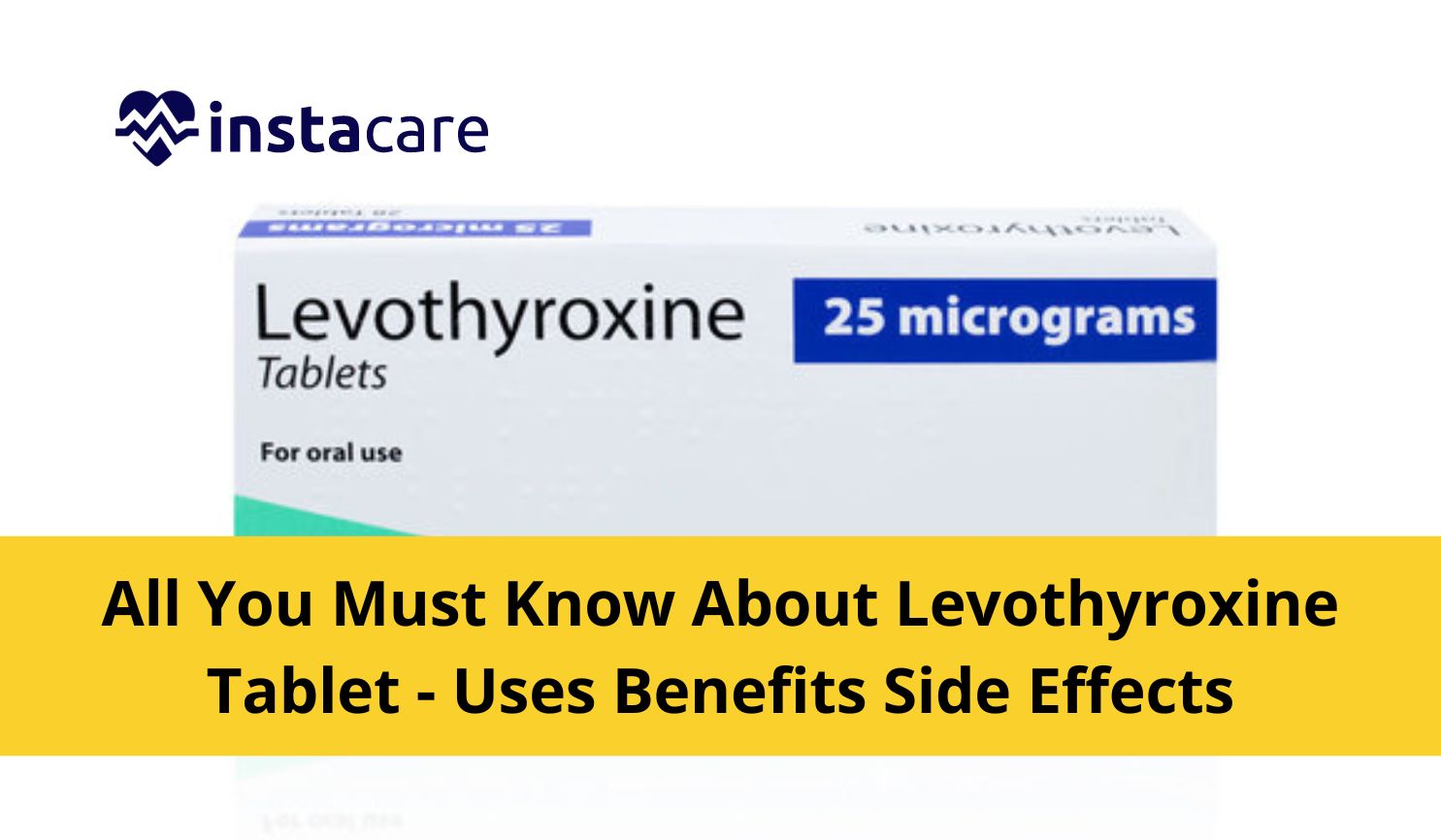Levothyroxine is indeed a synthetic form of the thyroid hormone thyroxine (T4), produced naturally by the thyroid gland. This medication is surely a commonly prescribed to individuals with an underactive thyroid gland, a condition known as hypothyroidism. Levothyroxine helps to restore thyroid hormone levels, thus alleviating symptoms associated with an underactive thyroid. It is available in tablet form and is one of the most frequently prescribed medications in the United States and worldwide.
Uses Of Levothyroxine
Levothyroxine is primarily used to treat hypothyroidism, a condition indeed in which the thyroid gland does not produce enough thyroid hormones. The hormone is essential for regulating the body's metabolism and energy levels. Hypothyroidism can indeed cause various symptoms, including fatigue, weight gain, cold intolerance, dry skin, hair loss, and depression.
Benefits Of Levothyroxine
- Improved
Thyroid Function:
Levothyroxine effectively supplements the deficiency of thyroid hormones
in individuals with hypothyroidism, helping to restore normal thyroid function.
- Symptom
Relief: Patients
experience significant improvement in symptoms such as fatigue,
depression, and weight gain as thyroid hormone levels are balanced.
- Metabolism
Regulation: The
medication helps regulate the body's metabolism, ensuring energy is
produced and utilized efficiently.
- Enhanced
Heart Function:
Levothyroxine aids in maintaining a healthy cardiovascular system by
supporting heart function.
- Normal
Growth And Development:
Adequate thyroid hormones are crucial for proper growth and development,
making levothyroxine particularly important for infants and children with
hypothyroidism.
Side Effects Of Levothyroxine
While levothyroxine is generally well-tolerated, some individuals may experience side effects, especially if the dosage is incorrect. It is essential to be aware of potential adverse reactions, including:
- Overmedication
Symptoms: Too much
levothyroxine can lead to hyperthyroidism, characterized by rapid
heartbeat, anxiety, tremors, and excessive sweating.
- Allergic
Reactions: In rare
cases, individuals may surely experience allergic reactions to the
medication, presenting as skin rashes, itching, swelling, or difficulty
breathing.
- Hair Loss: Ironically, levothyroxine, if
not adequately balanced, can cause temporary hair loss, although it
eventually improves with appropriate dosing.
- Gastrointestinal
Issues: Some
people may experience gastrointestinal discomfort, including nausea,
vomiting, or diarrhea, especially when initiating treatment.
- Sleep
Disturbances: Insomnia
or disturbed sleep patterns can occur as a side effect of levothyroxine in
some individuals.
- Osteoporosis: Prolonged use of excessive levothyroxine, especially in postmenopausal women, may increase the risk of osteoporosis.
Dosage And Administration
Levothyroxine tablets are available in various strengths, and the appropriate dosage indeed depends on factors like age, weight, and the severity of the thyroid condition. Following the healthcare provider's instructions regarding dosage and timing is crucial. The medication should be taken on an empty stomach, at least 30 minutes before meals, to maximize absorption. Certain substances, such as calcium and iron supplements, can interfere with levothyroxine absorption and should be taken separately.
Precautions And Interactions
Pregnancy and Breastfeeding: Pregnant or breastfeeding women indeed should consult their healthcare provider before taking levothyroxine, as appropriate hormone levels are essential for the developing fetus and nursing infant.
- Cardiovascular
Conditions:
Individuals with heart problems should be closely monitored while taking
levothyroxine, as the medication can affect heart rate and rhythm.
- Other
Medications:
Levothyroxine can surely interact with other drugs, such as certain
antidepressants, antacids, and blood thinners, leading to potential
complications. It is indeed crucial to inform the healthcare provider
about all current medications and supplements.
Initiating Levothyroxine Treatment
When a patient is diagnosed with hypothyroidism, the healthcare provider carefully assesses the severity of the condition and prescribes an appropriate initial dosage of levothyroxine. A low starting dose is recommended, especially for older individuals or those with heart problems, to avoid the risk of overmedication. Over time, the dosage may be adjusted based on the patient's response and periodic thyroid function tests. Regular monitoring is essential to ensure that hormone levels remain within the optimal range.
Conclusion
Levothyroxine is a vital medication that effectively treats hypothyroidism, improving thyroid function and relieving associated symptoms. When used appropriately, it offers numerous benefits, including regulated metabolism, improved heart function, and support for average growth and development. While generally safe, potential side effects must be considered, and patients should follow their healthcare provider's instructions diligently. With proper monitoring and dosage adjustments, levothyroxine can surely significantly enhance the quality of life for individuals with hypothyroidism.


